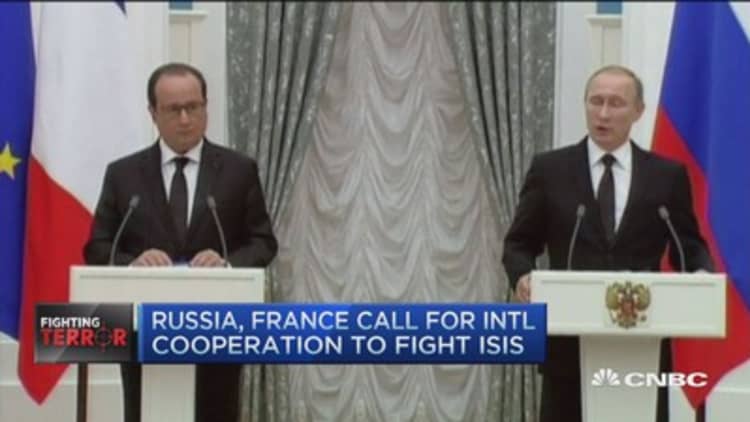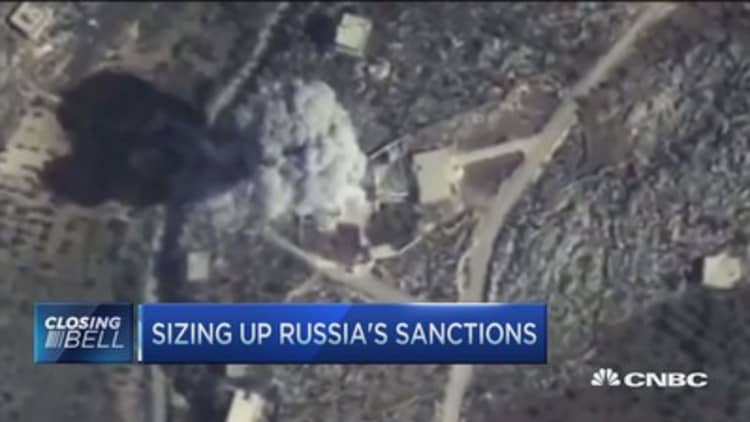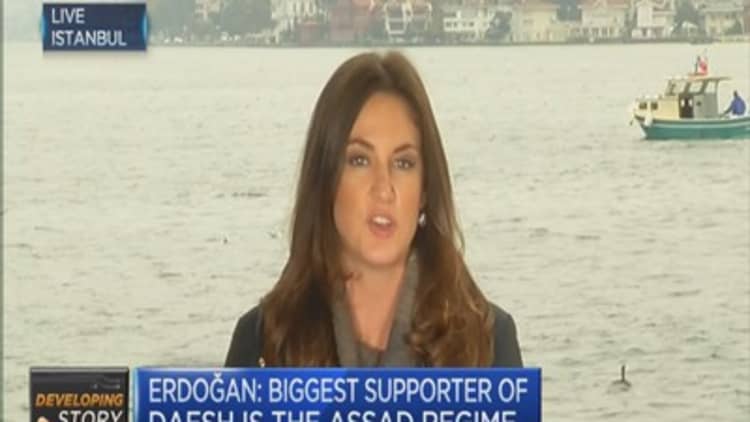


Turkey's foreign ministry advised people to postpone non-urgent travel to Russia on Saturday, as the tit-for-tat accusations and warnings continue after the downing of a Russian jet.
The statement, in Turkish, on its website came after the Kremlin that President Recep Tayyip Erdogan had asked to meet with Russia's President Vladimir Putin in Paris on Monday.
If the talks go ahead, it will be the first time that both leaders are in the same country since Turkish forces shot down a Russian fighter jet near the Syrian border earlier this week, which killed one of two pilots. This prompted harsh words from the Kremlin and threats to scrap major energy projects and trade ties.
The Kremlin has not yet revealed whether President Putin will accept Erdogan's offer. However, Yui Ushakov, Putin's aide, told reporters that the president has refused to contact the Turkish leader considering that Erdogan has shown an "unwillingness to simply apologize for the incident."
Putin will travel to Paris to take part in COP21, a major UN climate conference which kicks off on Monday.
Erdogan said on Saturday that he was saddened by the downing of the warplane, according to Associated Press Television News.
However, he also defended Turkey's action and criticized Russia for its activity in Syria.
"We are very saddened by the incident (the downing of a Russian warplane by Turkish forces) that happened. We wish it hadn't happened, but it happened. I hope something like this doesn't happen again," he said, according to Associated Press.
Meanwhile, on Friday, Russia's foreign minister Sergey Lavrov announced that Russia has decided to cancel visa-free travel between Russia and Turkey, Reuters reported.
Controversy over the circumstances continues, with Turkey maintaining that Russian pilots ignored numerous warnings to leave Turkish airspace.
Risk analysis firm IHS Jane's suggested late Thursday that Russian radio equipment could be to blame for crossed communications between Turkey and the Russian pilots.
Turkey maintains that they warned the jet 10 times to leave national airspace within five minutes, while a surviving Russian pilot claimed he did not receive any emergency signals.
Citing Russian sources, IHS reports that the radio model installed on the plane was lacking an optional component that would have received emergency transmissions sent at ultra-high frequencies.
— With contribution from CNBC's Katy Barnato and Reuters.


